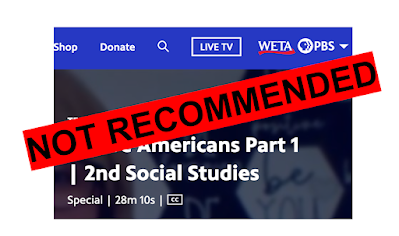It is the latest in many items about him and the groups in Vermont who claim to be Abenaki. This is the first one I know of in which he was asked directly. His answer, "Am I not a black belt because I wasn't born as one?" is deeply troubling. He is suggesting that anyone can be Native. That is not true!
For convenience I am pasting the items from the Native or Not resource here. I recommend you read them. I'm updating the list as I can.
The summary:
Pursuant to 25 CFR 83.10(l)(2), notice is hereby given that the Department of the Interior (Department) declines to acknowledge the group known as the St. Francis/Sokoki Band of Abenakis of Vermont (SSA), P.O. Box 276, Swanton, Vermont 05488, c/o Ms. April Merrill, as an Indian tribe within the meaning of Federal law. This notice is based on a determination that the petitioner does not satisfy four of the seven mandatory criteria for acknowledgment, specifically 83.7(a), 83.7(b), 83.7(c), and 83.7(e), as defined in 25 CFR part 83. Consequently, the SSA petitioner does not meet the requirements for a government-to-government relationship with the United States.
Odanak First Nation denounces VT-state recognized Abenaki tribes as 'Pretendian' by Elodie Reed, Mitch Wertlieb, and Karen Anderson at Vermont Public Radio on May 5, 2022 is good summary of "Beyond Borders: Unheard Abenaki Voices from the Odanak First Nation" [Added on May 11, 2022]
The editorial note accompanying Furukawa's article is compelling:
In reporting this piece, NHPR independently fact-checked claims of Indigenous ancestry using professional genealogies; requested verification from tribal nation records; and asked sources to share what evidence they have to support their claims of Indigenous ancestry. NHPR also consulted with members of the Native American Journalists Association (NAJA) and multiple experts on Indigenous identity, including this NAJA training on “Understanding Indigenous Claims and Connections.”
NHPR acknowledges that our newsroom has not sought to verify claims of Indigenous ancestry before, relying on sources to self-identify. We now understand that verifying such claims – especially when it comes to people who claim leadership or speak on behalf of an Indigenous community and are not members of a federally recognized tribal nation – is part of our basic responsibility as journalists. Going forward, we pledge to take steps to better ensure the accuracy of our coverage of Indigenous communities and issues.
"Abenaki" Group of Missisquoi: Research Findings Reveal Troubling Irregularities in the State of Vermont's Recognition Process is a press release issued by Abenaki Heritage on July 31, 2023. [Added to resource list on August 19, 2023]
Why Vermont tribes, New Hampshire groups might claim to be Abenaki without even proving ancestry by Julie Furukawa and Elodie Reed at Vermont Public Radio on August 8, 2023. [Added to resource list on August 19, 2023]
Odanak Musician Mali Obomsawin Talks Music, Community and Vermont's 'Pretendian Problem' by Ken Picard at Seven Days on September 27 2023. [Added to resource list on September 30, 2023]


